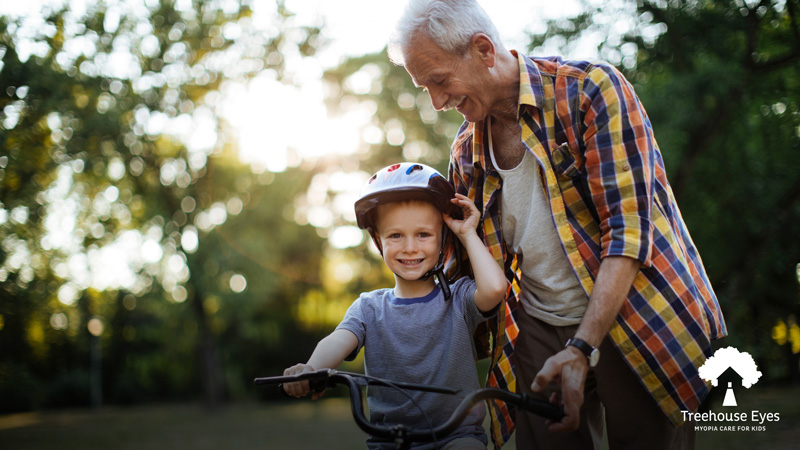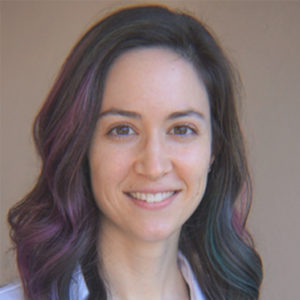NO PURCHASE IS NECESSARY TO ENTER OR WIN. A PURCHASE WILL NOT INCREASE YOUR CHANCES OF WINNING. ALL FEDERAL, STATE, LOCAL, AND MUNICIPAL LAWS AND REGULATIONS APPLY. VOID WHERE PROHIBITED.
- Eligibility
See MO This Summer Giveaway (the “Contest”) is open to legal residents of the fifty (50) United States and the District of Columbia who are at least eighteen (18) years old at the time of entry. Employees of St. Johns Eye Associates and other companies associated with the promotion of the Contest, and their respective parents, subsidiaries, affiliates and advertising and promotion agencies as well as the immediate family (spouse, parents, siblings, and children) and household members of each such employee are not eligible. The Contest is subject to federal, state, and local laws and regulations.
- Sponsor
The Contest is sponsored by St. Johns Eye Associates, located at 200 Nocatee Village Drive, Ponte Vedra, FL 32081
- Agreement to Official Rules
Participation in the Contest constitutes entrant’s full and unconditional agreement to and acceptance of these Official Rules and the decisions of the Sponsor, which are final and binding. Winning a prize is contingent upon being compliant with these Official Rules and fulfilling all other requirements set forth herein.
- Contest Period
The Contest begins on April 1, 2024 at 8:00am EST and ends on May 1, 2024 at 10:00pm EST (the “Contest Period”). Entries that are submitted before or after the Contest Period will be disqualified. Submissions will be accepted for the duration of the Contest using any of the following methods:
Online
- How to Enter
Online: This method of entry will be available by visiting our website (www.stjohnseyeassociates.com/official-entry) and following the directions provided to fill out the entry information, and submit.
Limit one (1) entry per person, per email address, and per household for the duration of the Contest Period, regardless of method of entry. Entries received from any person, e-mail address, or household in excess of the stated limitation will be void. All entries become the property of Sponsor and will not be acknowledged or returned.
- Prize Drawing
On or about May 15, 2024, the Sponsor will select potential winners in a random drawing from among all eligible entries received. The odds of being selected depend on the number of entries received. The Sponsor will attempt to notify the potential winner via telephone or email on or about May 25, 2024. If the potential winner cannot be contacted within five (5) days after the date of the first attempt to contact him/her, the Sponsor may select an alternate potential winner in his/her place at random from the remaining non-winning, eligible entries.
- Winner Notification
The potential winners will be notified by email, mail or phone. Each potential Grand and First Prize winner (parent/legal guardian if a minor in his/her state of residence) will be required to complete, electronically sign and submit a Declaration of Compliance within five (5) days of the date notice or attempted notice is sent, in order to claim his/her prize. If a potential winner cannot be contacted, or fails to submit the Declaration of Compliance within the required time period (if applicable), or prize is returned as undeliverable, potential winner forfeits prize. If the potential winner is at least 18 but still considered a minor in his/her jurisdiction of residence, Sponsor reserves the right to award the prize in the name of his/her parent or legal guardian, who will be required to sign the Declaration of Compliance on the potential winners behalf and fulfill any other requirements imposed on winner set forth herein. Potential winners must continue to comply with all terms and conditions of these Official Rules, and winning is contingent upon fulfilling all requirements. In the event that a potential winner is disqualified for any reason, Sponsor will award the applicable prize to an alternate winner by random drawing from among all remaining eligible entries. Only three (3) alternate drawings will be held, after which the prize will remain un-awarded. Prizes will be fulfilled approximately 8-10 weeks after the conclusion of the Contest.
- Prizes
Grand Prize Getaway Weekend (1) – $500 AirBNB or VRBO voucher, $500 Visa gift card for incidental weekend expenses. No airfare, travel, or other accommodations provided.
- General Conditions
In the event that the operation, security, or administration of the Contest is impaired in any way for any reason, including, but not limited to fraud, virus, bug, worm, unauthorized human intervention or other technical problem, or in the event the Contest is unable to run as planned for any other reason, as determined by Sponsor in its sole discretion, the Sponsor may, in its sole discretion, either (a) suspend the Contest to address the impairment and then resume the Contest in a manner that best conforms to the spirit of these Official Rules or (b) terminate the Contest and, in the event of termination, award the prize at random from among the eligible, non-suspect entries received up to the time of the impairment. The Sponsor reserves the right in its sole discretion to disqualify any individual it finds to be tampering with the entry process or the operation of the Contest or to be acting in violation of these Official Rules or in an unsportsmanlike or disruptive manner. Any attempt by any person to damage the website or undermine the legitimate operation of the Contest may be a violation of criminal and civil law, and, should such an attempt be made, the Sponsor reserves the right to seek damages (including attorney’s fees) and any other remedies from any such person to the fullest extent permitted by law. Failure by the Sponsor to enforce any provision of these Official Rules shall not constitute a waiver of that provision.
- Release and Limitations of Liability
By participating in the Contest, entrants agree to release and hold harmless the Sponsor, and each of their respective parents, subsidiaries, affiliates, advertising and promotion agencies, other companies associated with the Contest, and each of their respective officers, directors, employees, shareholders, representatives, and agents (the Released Parties) from and against any claim or cause of action arising out of participation in the Contest or receipt or use of the prize (including any travel or activity related thereto), including, but not limited to: (a) any technical errors associated with the Contest, including lost, interrupted or unavailable Internet Service Provider (ISP), network, server, wireless service provider, or other connections, availability or accessibility or miscommunications or failed computer, satellite, telephone, cellular tower or cable transmissions, lines, or technical failure or jumbled, scrambled, delayed, or misdirected transmissions or computer hardware or software malfunctions, failures or difficulties; (b) unauthorized human intervention in the Contest; (c) mechanical, network, electronic, computer, human, printing or typographical errors; (d) application downloads, (e) any other errors or problems in connection with the Contest, including, without limitation, errors that may occur in the administration of the Contest, the announcement of the winner, the cancellation or postponement of the event and/or the flyover, if applicable, the incorrect downloading of the application, the processing of entries application downloads or in any Contest-related materials; or (f) injury, death, losses or damages of any kind, to persons or property which may be caused, directly or indirectly, in whole or in part, from entrants participation in the Contest or acceptance, receipt or misuse of the prize (including any travel or activity related thereto). Entrant further agrees that in any cause of action, the Released Parties liability will be limited to the cost of entering and participating in the Contest, and in no event shall the entrant be entitled to receive attorney’s fees. Released Parties are also not responsible for any incorrect or inaccurate information, whether caused by site users, tampering, hacking, or by any equipment or programming associated with or utilized in the Contest. Entrant waives the right to claim any damages whatsoever, including, but not limited to, punitive, consequential, direct, or indirect damages.
- Disputes
Except where prohibited, each entrant agrees that any and all disputes, claims and causes of action arising out of, or connected with, the Contest or any prize awarded shall be resolved individually, without resort to any form of class action, and exclusively by the appropriate court located in Florida. All issues and questions concerning the construction, validity, interpretation and enforceability of these Official Rules, entrants rights and obligations, or the rights and obligations of the Sponsor in connection with the Contest, shall be governed by, and construed in accordance with, the laws of Florida, without giving effect to any choice of law or conflict of law rules, which would cause the application of the laws of any jurisdiction other than Florida.
- Privacy
Information collected from entrants is subject to sponsor’s privacy policy.



 Dr. Kapadia originally hails from St. Catharines, Ontario, Canada where he earned his Bachelor of Arts degree from Brock University. He then went on to graduate with honors from the Michigan College of Optometry in 1998, where he specialized in contact lenses. After he graduated, Dr. Kapadia completed a one-year residency at the renowned Bascom Palmer Eye Institute in Miami, Florida, where he focused on ocular diseases.
Dr. Kapadia originally hails from St. Catharines, Ontario, Canada where he earned his Bachelor of Arts degree from Brock University. He then went on to graduate with honors from the Michigan College of Optometry in 1998, where he specialized in contact lenses. After he graduated, Dr. Kapadia completed a one-year residency at the renowned Bascom Palmer Eye Institute in Miami, Florida, where he focused on ocular diseases. Dr. Kapadia graduated with honors from the Michigan College of Optometry in 1999, where she received the Wesley-Jessen award for Outstanding Work in Contact Lenses. During her studies, she also served as President of Student Volunteer Optometric Services to Humanity (SVOSH), which works to improve the sight of millions of people in developing countries.
Dr. Kapadia graduated with honors from the Michigan College of Optometry in 1999, where she received the Wesley-Jessen award for Outstanding Work in Contact Lenses. During her studies, she also served as President of Student Volunteer Optometric Services to Humanity (SVOSH), which works to improve the sight of millions of people in developing countries. After growing up in Minersville, Pennsylvania, Dr. Price graduated from Susquehanna University in 2012 with a Bachelor’s Degree in Biology. Dr. Price continued her education at the Pennsylvania College of Optometry and completed her training in 2016. After graduation, Dr. Price spent her career studying advanced eye diseases and specialized Low Vision services and devices.
After growing up in Minersville, Pennsylvania, Dr. Price graduated from Susquehanna University in 2012 with a Bachelor’s Degree in Biology. Dr. Price continued her education at the Pennsylvania College of Optometry and completed her training in 2016. After graduation, Dr. Price spent her career studying advanced eye diseases and specialized Low Vision services and devices. Dr. Morgan Kickliter grew up in Hendersonville, Tennessee.
Dr. Morgan Kickliter grew up in Hendersonville, Tennessee. Dr. Phillips earned his Bachelor of Science in Chemistry at the University of Georgia before achieving his Doctor of Optometry from the Southern College of Optometry. There, he served as Vice President of the Georgia Optometric Student Association and provided free and cost-reduced optometric care to underserved patients in Mexico and Belize with the Student Volunteer Optometric Services to Humanity. He served his residency at Gainesville Eye Associates, focusing on ocular diseases.
Dr. Phillips earned his Bachelor of Science in Chemistry at the University of Georgia before achieving his Doctor of Optometry from the Southern College of Optometry. There, he served as Vice President of the Georgia Optometric Student Association and provided free and cost-reduced optometric care to underserved patients in Mexico and Belize with the Student Volunteer Optometric Services to Humanity. He served his residency at Gainesville Eye Associates, focusing on ocular diseases.